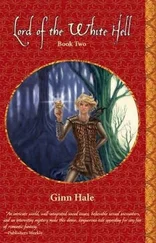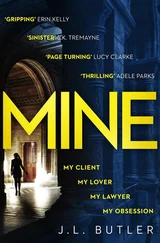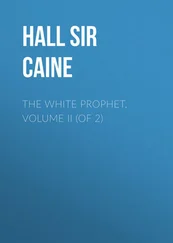When Charles was announced, a few gentlemen were just leaving the King’s apartments; to his deep amazement, Charles saw that one of them was Dammartin, who had been a trusted advisor of Charles VII.
“That surprises you, worthy uncle?” asked the King suddenly. He stood, Charles noticed, leaning his arms on the high back of a chair. “Go sit down — you look as though your legs will barely hold you. Great old age may be worthy of respect but its attendant symptoms are troublesome: tottery legs, trembling fingers, loss of hair and teeth — isn’t that right, uncle?”
Charles sat down, startled by these caustic, derisive words. Passion and pride stirred equally within him, but he controlled himself; for the sake of his son’s security he could afford to put up with a little abuse. “I remembered that Dammartin once aroused your boundless displeasure, Sire, because he served your father so faithfully,” he said calmly.
The King began to laugh softly; he rested his chin on his fists. His body remained invisible behind the chair. That moving head, with its black eyes gleaming with malice and contempt, made a grotesque, almost terrifying impression. “Dammartin is one of those men who always remains loyal to the king — whoever the king might be — the born devoted servant — a possession not to be squandered. What didn’t please me when I was Dauphin, I find excellent now that I am King, my worthy uncle.”
“Yes, I have noticed that, Sire,” replied Charles with a sigh. “Therefore I too have come to you to request your forebearance for my nephew, my Lord of Brittany.”
“Not necessary! Waste no words on that, my lord uncle of Orléans. Spare me your meddling and your pretty speeches. I am not pleasant and courtly enough to hear your platitudes to the end.”
Charles remained in his chair; he asked himself whether he had heard the King correctly. That Louis disliked him he knew very well, but surely his age and rank gave him the right to courteous treatment, at the least.
“You need not stare at me in such surprise,” the King went on, in a tone of cold amusement. “I will readily admit to you that I have always found you an extremely stupid old fellow. If you had only half the brains which you think you have, you would undoubtedly be the wisest man in France.”
“God knows that I have never held an exceptionally high opinion of myself. I willingly admit that I am old and stupid — but I have enough sense to know that such words are not worthy of one who wears the crown of France. And I am your blood relative, Sire.”
The King sniggered again; he raised his hand and pointed a long, tapering finger at his guest. “You are my uncle, my father’s half-brother,” he said, visibly enjoying Charles’ incredulous consternation at hearing these words. “I at least have never doubted that Isabeau, that slut, spoke the truth when she called my father — may God rest his soul — Orléans’ bastard. Don’t think that it disturbs me. On the contrary, better this than to stem from a lunatic.”
Charles rose slowly. He had an answer on his lips. The King’s malicious, grimacing face, his forefinger raised in an almost grotesque gesture, roused irresistible memories of the man who had once been held captive like a wild beast — the man who had had to be hidden from the court and the people because of his bizarre grimaces.
“I do not wish to tire you any longer with my presence, Sire,” Charles said formally. For a moment the room sank into a grey mist; a strange buzzing filled his ears. I am ill, he thought, surprised, I must return to Blois. He heard his own voice as though it came from a distance; the words came slow, dull, with silence between them. “I deeply regret that you doubt the nature of my intentions — that you consider my actions to be meddlesome. All my life I have sincerely endeavored — sincerely endeavored — to serve my king — to fulfil my obligations to friends and kinsmen. I have — been — a—man — of peace …”
“Ah—.” The King made a protracted sound to show his impatience and distaste. “Once more — spare me all the fine talk. What have you done, uncle? What have you accomplished in that long life of yours? How have you used the opportunity which was granted to you — more I know than to others — to maintain order in the realm, to preserve peace and support the royal authority? What have you, with all your good will and so-called wisdom, understood of the evolution we have undergone — of the real significance of the struggle which has been going on since my great-grandfather’s day — between the Crown and the powerful forces who want to smash it to pieces? — For me you are already a dead man, uncle, a residue of something which has died without knowing it. In my eyes you are a ridiculous, foolish old man — you trot along good-naturedly with your peers who stretch out their claws in a last desperate attempt to grasp power.
“But it is over, lord uncle, it is over. Your time, the time when great lords were kings, is over. Henceforth there will be one King in France, one single King, by God’s grace and by your leave, and that King will rule from the Pyrenees to the farthest border of the lowlands. He who dares to nibble at the cake will be sent from the table. Believe me, uncle, if any crumbs are to be picked up it will not be by the flashy, ambitious ne’er-do-wells with their gilt escutcheons and fine-sounding names, but by those who have made the cities great and prosperous, by the men behind the anvil and in the shipyards, by the weavers and smiths, by the merchants, soldiers — by each one with diligence and keen intelligence, even if he comes crawling up from the slime of the sewer. These I shall amply reward for their service — not a high-born weakling like you, uncle, who lets every chance slip through his fingers, who willingly lets himself be led by anyone who puts himself to the trouble of taking him in tow. Distinction, dignity, an affable manner — all at your service — but for all that, you did nothing worth mentioning for either king or country.
“Go back to Blois, putter about with rhymes and rock the cradle. God knows you could have been king, you could have spared the Kingdom a half-century of misery if you had had a drop of true ruler’s blood in your veins. You could have stood where I stand now, instead of whining with humiliation and groping for the way to the door on trembling legs …”
Charles, who was feeling at the wall for support — he could not see; it was growing dark before his eyes — stood still.
“I never imagined that I possessed great gifts. When I was young, I often asked myself bitterly why so heavy a burden had been laid precisely on my shoulders, why I had to carry out a task which was too much for my strength. But now I know that each man over the course of his life receives an assignment which enables him to learn the lesson which he must learn here on earth …”
“And what have you learned, uncle?” asked the King, laughing softly.
Charles shook his head. Now all at once he felt thin and light, then again a leaden weight seemed to press him down to earth.
“I have been a slothful scholar — often wilful and easily distracted — but each day I learn to understand better — that in life people are not charitable enough to one another — and that he who is humble at heart — and sincere — can find and keep God’s gifts, beauty and happiness—”
“Is that all?”
“Green grass in the sunlight — a child’s laughter — and the beauty — the beauty of language—”
“Yes, yes.” The King sighed with impatience; he no longer found the conversation amusing.
“That is only a small portion of the truth,” Charles said with an effort, “but enough to make me realize that I know nothing. Since I realized that, I have had a deep desire to become truly wise. I am aware that what up to now I have considered reality is not reality at all. The world in which one wishes to be great and powerful and feared, your world, Sire, is an illusion.” He coughed and gasped for breath. “I have not lived my life in vain. If I once … may have a glimpse of the real world …”
Читать дальше












